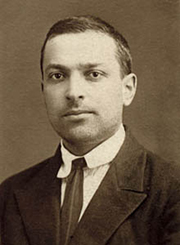5 Learning language and mental development: an introduction to Vygotsky
Halliday argues that learning a language is not so much a process of acquiring a commodity that is ‘out there’ but rather a process of ‘construction in interaction with others’ (Halliday, 2004). This is a position shared by Vygotsky who, like Halliday, has also had a significant influence on those researching and working in first- and second-language learning contexts.
Unlike Halliday, however, Vygotsky’s perspective on language and learning has its origins in the discipline of psychology. Vygotsky argues that learning and mental development need to be viewed as a social process: it is through the interactions we enter into with other members of our culture, particularly those who are more knowledgeable or proficient, that we make sense of the world and learn new (usually culturally and socially specific) ways of seeing, doing and being (Vygotsky, 2011). Thus Vygotsky’s emphasis on the sociocultural can be seen as breaking away from his disciplinary grounding in psychology, which is normally concerned with exploring the psyche of the individual. Vygotsky was quite radical for his time as he was among the first theorists, at least in psychology, who recognised humans as social and cultural beings. He remains very influential to this day, albeit more so in the field of education than in linguistics.

